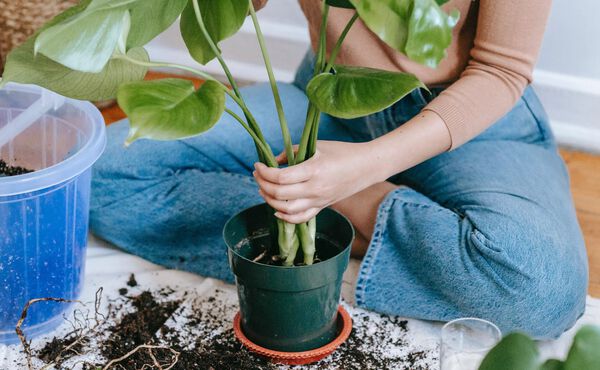Anything you can do to preserve the planet is a win and these hobbies are a great place to start.
At Rituals, we care about the wellbeing of people and planet which is why we launched our 10% Profit Pledge to better the balance in the world (you can read all about our initiatives here). So, in our minds, anything you can do to preserve the planet is a win! If you’re looking for a way to contribute in your spare time, these hobbies are a great place to start.
With an aim to conserve energy, reduce waste or use renewable resources, it’s more than just learning to knit or buying second-hand clothes – although granted, both of those are worthy efforts too. Here’s just a few things you could try that might inspire and excite you without leaving a negative footprint on the environment.
Urban Gardening
You might not consider yourself ‘green fingered’ or have a lot of space to play with but growing your own plants and vegetables is not only super satisfying, it boosts biodiversity, allows you to grow pesticide-free produce, reduces your carbon footprint and encourages you to live by the seasons. It also has multiple mental health benefits and as well as being incredibly grounding, there’s actually a bacteria in soil that has been found to release serotonin (the happy hormone) in the brain. So, whether it’s a few plant pots, your back garden, an allotment or a community garden, roll your sleeves up and get harvesting.
Read our handy gardening guide here.
Become a beekeeper
Responsible for over 80% of the world’s plant pollination activity, bees are royalty in our ecosystem with nearly a third of our food coming from honey pollination, but they also need preserving. Which is where you could step in as a beekeeper. There are plenty of hives where you can lend a helping hand or if you’re serious and want to own your own colony of bees, you can enrol on a specific course.
You can read more about beekeeping here.
Go ‘plogging’
Did you know around 20,000 people plog every day in 100 countries. A practice that orginated in Sweden and combines jogging with picking up litter, it encourages people to be proud of the environment they’re working out in. It also means that when you don’t feel like putting your trainers on, the incentive of ‘doing good’ might be the motivation you need. You could also walk, cycle, rollerskate your way to being a litter picker too if jogging isn’t your thing!
Brew your own beer
Producing a pint of beer requires around 168 litres of water and while home brewing means initially investing in your own equipment, the payoff for the environment is quite something. You can use organic grains, glass vessels (no plastic here), re-use your yeast and even recycle the Co2 created during the fermentation process using special balloons (Mylar) that you can use to carbonate the beer. Creating a circular system, your friends will love you for it too!
Volunteer your services
Humbling, meaningful, rewarding – if you want your new eco hobby to give you all the feels, volunteering is the one. Plus, you can really tailor it to your interests – environmental organisations that pioneer clean-ups, tree planting or conservation projects; working in a local charity shop; dog walking for the elderly…or if you’re a dab hand at something creative – macrame, upcycling, painting, you could even consider forming your own group in your local community.
Find out all about the incredible benefits of volunteering here.
Try foraging
It’s a foodie practice that’s been practised since ancient times but foraging is on-trend and even has some of the top chefs around the world engaging in it to produce seasonal dishes that align with nature. However, you need to know your environment before you go wild in the wild so if you’re keen, search for local foragers who can give you the downlow on what to pick and when. Using nature’s abundance, you never know what unusual ingredients you might find close to home.
Master the art of fermenting
An energy-efficient way to preserve food, fermenting can get addictive pretty quickly as you realise just how creative you can be with ingredients. Fruits, vegetables, dairy products, it helps reduce food waste as well as preserving freshness and it uses minimal energy to do so. Glass jars, salt and water is all that’s needed and then your chosen delicacy. Vegetable peel pickles save scraps from the compost bin and can be enjoyed as a tangy snack, kombucha and kefir make gut-friendly refreshments while kimchi using stalks and leftover veg gives any dish a tangy twist.









